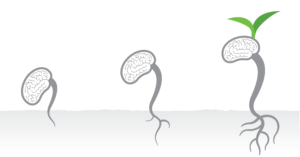Last night my husband and I watched All Quiet on the Western Front. It was my idea to watch it because it has already won several awards and was nominated for several Oscars, including best picture. Right from the start, I wanted to turn it off and yet felt compelled to continue.
This movie was graphic and harrowing; I think it felt real because of this. For two and a half hours, it was as if we were on the front lines, experiencing the horror while somehow safely tucked away from harm.
The book was required reading for most high school students of my generation. Upon reflection, I wonder why? Was it an attempt to prepare young men called to fight in Vietnam? Was it a silent protest on the part of educators? I don’t know, and I couldn’t find an explanation in my research.
It’s a story of humanity and the loss of humanity while at the same time a story of leadership. Not the traditional message that military leaders are the best leadership examples and should therefore be role models. Instead, it portrays all types of leaders, fallible humans, capable leaders, and those that are completely incompetent. Most importantly, the writers showed us the human cost of hubris.
I always remembered the book, especially the scene when the protagonist is in the trench with a French soldier. The movie brought home the message of humanity even more.
Sadly, as the horrors of war continue today in Ukraine and elsewhere, the following quote from Einstein reminds us how far we have not come.
“A human being is a part of the whole called by us universe, a part limited in time and space. He experiences himself, his thoughts, and his feelings as something separated from the rest, a kind of optical delusion of his consciousness. This delusion is a kind of prison for us, restricting us to our personal desires and to affection for a few persons nearest to us. Our task must be to free ourselves from this prison by widening our circle of compassion to embrace all living creatures and the whole of nature in its beauty.”
Perhaps the message the author and the screenwriters are sending is:
It is time for those of us who have the responsibility and the honor to lead to also take on the responsibility to practice humanity.









 The initial results of my Pivot are excellent. I feel I have much greater clarity regarding the next 3-5 years..
The initial results of my Pivot are excellent. I feel I have much greater clarity regarding the next 3-5 years.. 